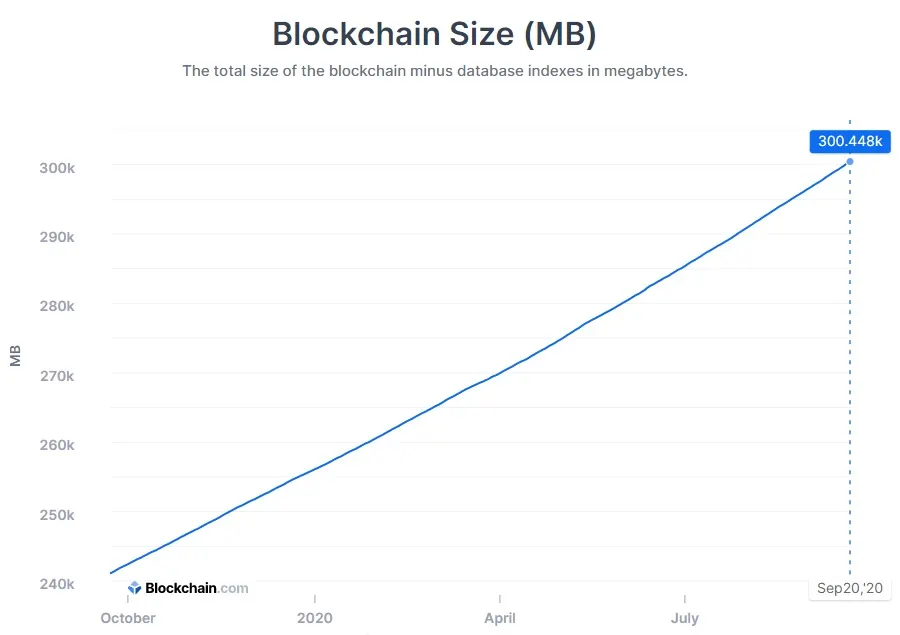The size of the full Bitcoin blockchain exceeded 300 gigabytes of data on September 19, according to Blockchain.com.
This is the size of the full Bitcoin transaction history for the past 10 years. It’s also the amount of information full mining nodes need to download and keep on their hard drives after synchronizing with Bitcoin’s network.

While this amount of data might seem significant, a terabyte hard drive would easily cover it—and continue to do so for another decade or two. In contrast, an archival node on the Ethereum blockchain is already over five terabytes in size—and increasing at record speeds with growing block sizes—although a pruned node comes in at just 165GB.
But the Bitcoin blockchain has been growing at a faster rate over the last few years—as opposed to its early days. This is largely due to an increase in the number of transactions being made on a daily basis and the introduction of scaling solution SegWit, which effectively doubled block sizes to two megabytes.
In the first four years of its life, the Bitcoin blockchain just reached 20GB. It was only in 2016, when it reached 54GB, that its growth started accelerating—likely due to more people using the network. Now it grows at about 58GB a year.
While the size of Bitcoin’s blockchain doesn’t necessarily affect the network’s speed today—after all, full nodes need to download the whole thing only once during synchronization—some parts of it still can be optimized.
Enabling the blockchain to scale
One small aspect of Bitcoin’s bloat is unspent transaction outputs (UTXOs)—these are created when some Bitcoin is sent and the remainder of the wallet is sent back to the wallet as “unspent.” While they only take up four gigabytes of space now, they could become a scalability bottleneck in the future, according to Utreexo developer Calvin Kim.
And that’s what Utreexo is trying to solve. Utreexo compresses these proofs to under one kilobyte and provides a long-term scalability solution as their size grows.
“Utreexo is a hash based accumulator, which allows unspent outputs to be compressed into a smaller size. There is no loss of security; instead, the burden of keeping track of funds is shifted to the owner of those funds,” the blog post explained.
This project has already received some backing. Crypto exchange BitMEX’s parent company, the 100x Group, has recently awarded a one-year grant of $40,000 to Utreexo. But getting Bitcoin to change is a slow and laborious process (deliberately) so it might be a while before it’s implemented. But as Bitcoin slowly grows, there’s plenty of time for adaptation.

